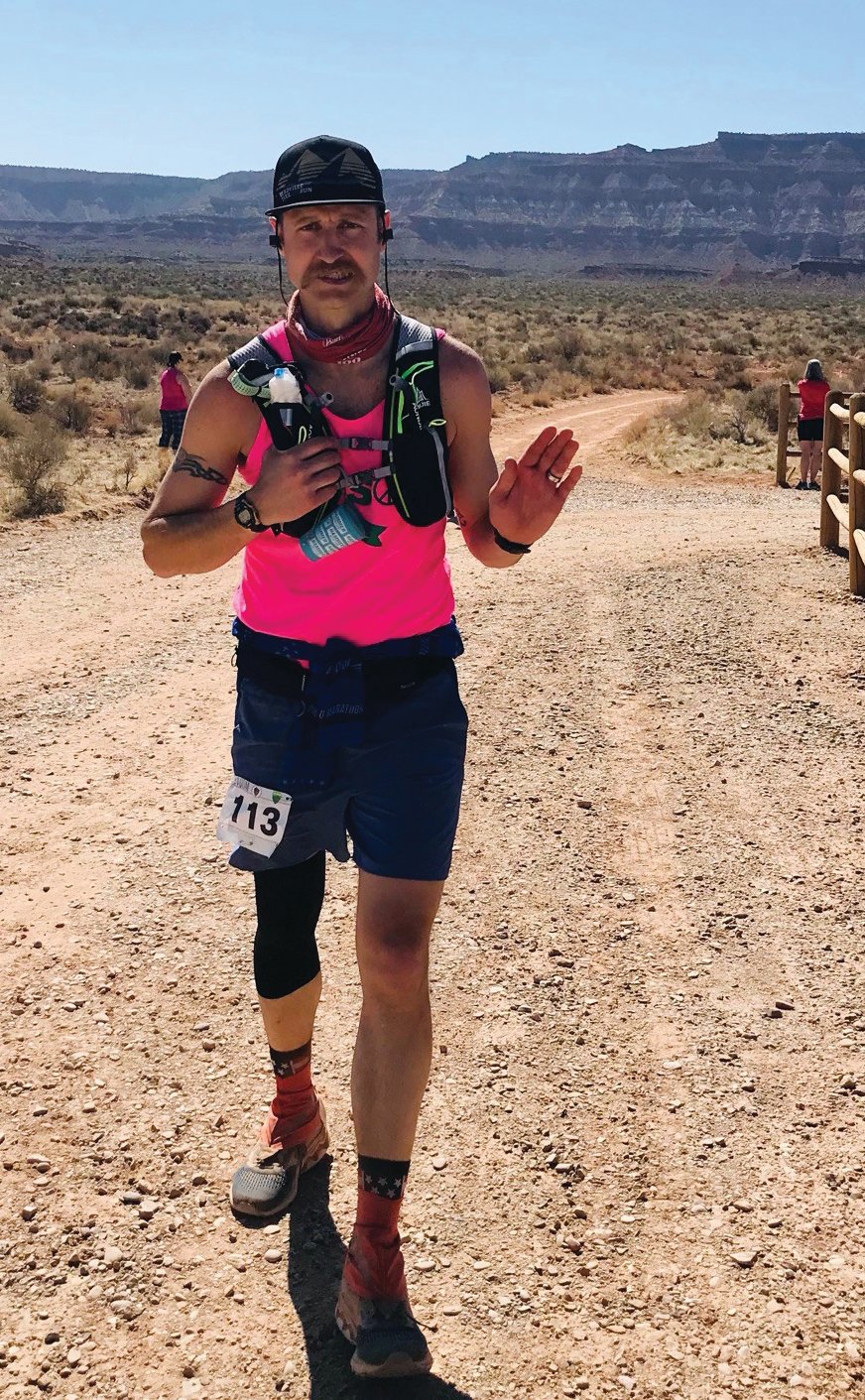
DARLINGTON — Four weeks after donating a kidney, David McCartney ran a 5K race. He finished last, but the important thing was getting up and moving after surgery.
“By 20 weeks [post-op] ... I was kicking ass and taking names again. On the same note, I wasn’t sitting idle,” he said.
McCartney, a Darlington farmer and maintenance worker for the Carmel Street Department, found a new purpose for his lifelong love of running as he decided to become a living organ donor: Raising awareness of kidney disease.
He and his 18-year-old son, Elijah, have a goal of running an ultramarathon in every state. They have been to 16 states so far including Kentucky, where they just completed a 50-mile run.
McCartney doesn’t know who received his kidney, but it wasn’t the first time he stepped up to save a life.
On a winter day in Atlanta, Indiana in 2006, McCartney, then 21, was driving home when the SUV in front of him went over an embankment into a culvert and caught fire.
After calling 911, McCartney and another Good Samaritan, Lee Pierce, kicked in the SUV’s windshield, cut the woman’s seat belt and pulled her out of the vehicle. The men’s actions earned them a medal from the Carnegie Hero Fund Commission.
McCartney received a card from the woman, who encouraged him to “keep doing good things in the world.”
“That’s what started my trip on saving people — trying to be the right person — because I wasn’t a very good person in the beginning, but [she] helped me see the light … to do the right kind of thing,” he said.
In 2018, Team Mason, a nonprofit organization that raises awareness of kidney disease and promotes living organ donations, contacted McCartney’s farm about donating meat for a fundraiser. The organization’s namesake, Mason Patton, was the brother of McCartney’s wife’s best friend. Patton died from hereditary kidney disease in 2014.
McCartney soon decided to begin the process of becoming a kidney donor himself. More than 107,000 people are currently on the waiting list for an organ transplant, according to the national Organ Procurement and Transplantation Network.
Of the more than 9,800 transplants performed so far this year, only about 1,400 were living donors.
“I think donors are an example of what we do best as humans and they are truly modern day heroes,” said Dr. John Powelson, McCartney’s surgeon at Indiana University Health.
McCartney underwent a series of extensive mental and physical screenings to ensure he was healthy enough to donate. The surgery was performed in February 2019.
Donors can live a healthy life with the remaining kidney as long as there are no underlying conditions that affect it.
“One kidney’s not a death. It’s a life for somebody else,” McCartney said.
After running the 5K race benefitting the Boys & Girls Club of Montgomery County, McCartney signed up for his sixth Indy 500 Festival Mini Marathon. He returned to work six weeks after surgery.
Every year, McCartney completes a 24-hour race to raise funds for Team Mason. Over the past five years, he’s collected upwards of $10,000-$20,000 including his own donations.
“He’s very giving and supportive and doesn’t let us give back to him very much,” said Patton’s mother, Denise Patton, who formed Team Mason.
Later this summer, McCartney and his son plan to check Tennessee and North Carolina off the list before running either a 200-mile race in California or a 240-mile race through the Mojave Desert in Utah.